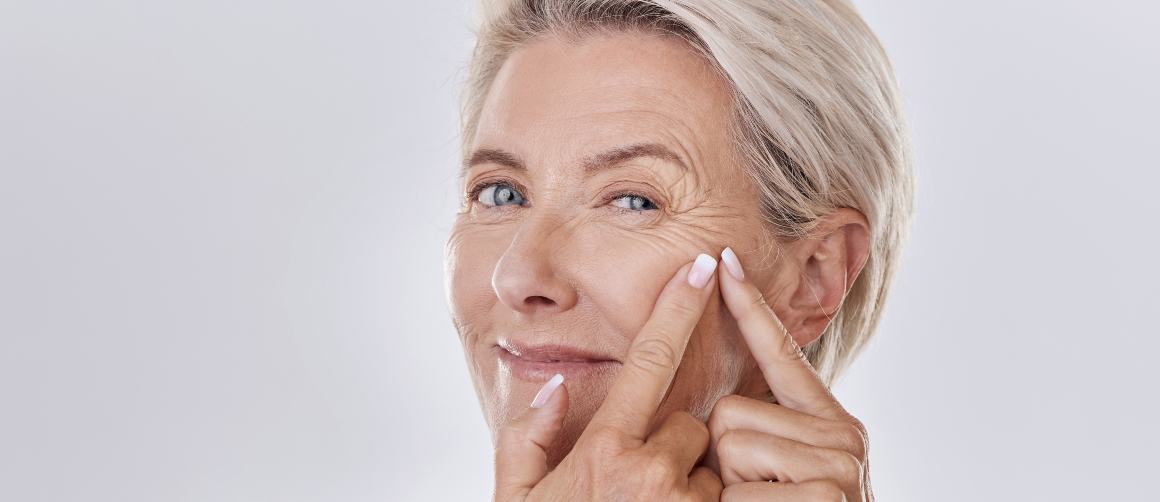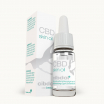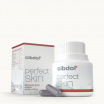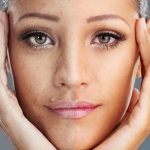What vitamin deficiency causes sagging skin?
Published:
Categories: CollagenSagging, wrinkled skin is one of the most noticeable signs of aging. As we get older, our skin loses elasticity and collagen, leading to loose, crepey skin that sags and wrinkles. While some amount of skin aging is inevitable, there are ways to slow the process and minimize sagging. One secret weapon against sagging skin? Getting enough of the right vitamins and nutrients. Vitamin deficiencies can accelerate skin aging and sagging. Read on to learn more about the vitamins that help keep skin youthful and which deficiencies contribute to premature aging.
Contents:
- Why Skin Ages and Sags As We Get Older
- The Vitamins That Help Combat Sagging Skin and Premature Aging
- How Vitamin Deficiencies Can Accelerate Sagging and Skin Aging
- Slowing Skin Aging: Getting Enough of These Vital Skin Vitamins
- What to Remember About Vitamins for Reducing Skin Aging
- Frequently Asked Questions About Vitamins and Skin Aging

Why Skin Ages and Sags As We Get Older
As we age, our skin gradually loses its youthful elasticity and firmness. Why does this happen?
- Collagen and elastin breakdown - Collagen and elastin proteins provide structure and elasticity. As we age, production declines and breakdown outpaces rebuilding.
- Loss of fat - Fat pads beneath the skin provide plumpness. As the fat pads shrink, skin sags.
- Thinning epidermis - The top layer of skin gets thinner, compromising moisture and protection.
- Lower cell turnover - Slower cell regeneration leads to a flattened dermal-epidermal junction. This reduces nutrients reaching the epidermis.
- Skin cell damage - Years of exposure to ultraviolet (UV) rays and pollutants break down skin cells and fibers.
- Hormone changes - Declines in estrogen, progesterone, and growth hormones contribute to collagen loss.
While intrinsic aging is inevitable, extrinsic factors like sun exposure, smoking, and poor nutrition hasten sagging. Vitamin deficiencies deprive skin of compounds needed for optimal renewal and protection, accelerating aging.
The Vitamins That Help Combat Sagging Skin and Premature Aging
The right vitamins positively influence processes from collagen production to antioxidant protection that maintain youthful, firm skin. Deficiencies allow sagging and wrinkling to set in earlier. Here are the key vitamins for anti-aging and preventing skin sagging:
Vitamin C
Vitamin C is crucial for collagen synthesis. This structural protein provides firmness and elasticity. Vitamin C also acts as an antioxidant, protecting against skin cell damage from free radicals caused by UV exposure and pollution. Signs of vitamin C deficiency include dry skin, frequent bruising, and poor wound healing.
Vitamin E
This fat-soluble antioxidant protects cell membranes against free radical damage. It also aids UV protection when applied topically. Low vitamin E can lead to prematurely aged skin.
Vitamin A
Retinoids like retinol are derived from vitamin A. They promote faster cell turnover for smoother, tighter skin. Vitamin A deficiency causes dry, flaky, wrinkled skin.
Vitamin D
Also known as the “sunshine vitamin,” vitamin D helps regulate collagen metabolism for supple skin. It may also lower risk of some skin cancers.
Vitamin B Complex
The B vitamins contribute to skin cell regeneration and growth. A deficiency can lead to rashes, acne, and dryness. Vitamin B3 promotes collagen production.
Zinc
Zinc assists wound healing by activating collagen and supporting tissue growth. It's also an antioxidant. Low levels are linked with acne and skin lesions.
How Vitamin Deficiencies Can Accelerate Sagging and Skin Aging
When vitamins and minerals are lacking, it shows in your skin. Accelerated aging, wrinkling, and sagging can result from the following deficiencies:
Vitamin C Deficiency
Without enough vitamin C, collagen production drops. This causes thinning, fragile skin that wrinkles easily. Easy bruising is also common with inadequate vitamin C.
Vitamin E Deficiency
Vitamin E deficiency hampers lipid protection. This leads to tissue damage by free radicals, accelerating sagging. Dry, itchy skin can occur.
Vitamin A Deficiency
Lacking vitamin A, cell turnover slows. This causes a buildup of dead cells on the skin’s surface, leading to dry, scaly, wrinkled skin and blemishes.
Vitamin D Deficiency
Inadequate vitamin D disturbs calcium homeostasis which is important for skin renewal. Older adults especially may experience sagging.
Vitamin B Deficiency
Deficiencies in B vitamins like B3, B5, and biotin contribute to dermatitis, dullness, and wrinkles by slowing cell growth.
Zinc Deficiency
With insufficient zinc, wound healing, collagen renewal, and tissue regeneration is impaired. This can lead to skin lesions, dryness, and wrinkles.
Slowing Skin Aging: Getting Enough of These Vital Skin Vitamins
While we can’t stop intrinsic skin aging altogether, ensuring we get adequate amounts of the right vitamins can slow extrinsic aging and prevent nutrient deficiencies that accelerate sagging and wrinkles. Here's how:
- Eat a balanced, nutrient-rich diet - Include plenty of antioxidant and vitamin-packed fruits, vegetables, nuts, seeds, beans, whole grains, eggs, fish, and lean poultry.
- Know your risks for deficiencies - Older adults, vegans/vegetarians, and those with absorption issues may need supplementation. Talk to your doctor.
- Address deficiencies - If testing reveals a deficiency, discuss supplements with your healthcare provider. Moderate deficiencies can often be corrected through diet alone.
- Consider targeted supplements - For anti-aging, collagen, antioxidants like vitamin C and E, and skin-supporting vitamins may help protect skin. Consult a dermatologist.
- Apply topical vitamins - Creams with vitamins C, E, and A provide an extra antioxidant boost when applied to skin. Look for stable, correctly formulated products.
While using sunscreen, quitting smoking, managing stress, and avoiding excess alcohol also slow aging, getting key vitamins helps maintain youthful, sag-free skin from the inside out. Be patient, though - improvements happen gradually. With smart nutrition and care, your skin will thank you.
What to Remember About Vitamins for Reducing Skin Aging
- Collagen and elastin breakdown are key causes of sagging, wrinkled skin. Vitamins aid collagen production.
- Vitamins C, E, A, and B complex plus zinc support skin renewal, elasticity, and damage protection.
- Deficiencies in these vitamins contribute to faster wrinkling and sagging.
- A healthy, balanced diet helps prevent aging-related skin vitamin deficiencies.
- Targeted nutritional supplements may further reduce skin aging, when used properly.
- Topical antioxidant creams with vitamins C, E and A provide added support alongside oral intake.
- Reversing deficiency-related skin damage takes time. Be patient and proactive with your nutrition.
Paying attention to your vitamin intake can make a real difference in maintaining youthful skin as you age. Work with your healthcare providers to identify potential deficiencies early and take steps to optimize your levels. Your skin will reap the benefits over time!
Frequently Asked Questions About Vitamins and Skin Aging
Q: Which vitamin deficiency causes the most dramatic skin aging?
A: Vitamin C deficiency likely has the most noticeable effects on skin. Without enough C, collagen production drops off, causing thin, sagging skin that wrinkles more easily. Easy bruising is also a telltale sign.
Q: Do vitamins really make a difference for aging skin?
A: Yes, vitamins play key roles in collagen production, antioxidation, wound healing, and skin cell growth - factors that help maintain elasticity and a youthful appearance. Deficiencies allow faster aging while adequate intake protects skin.
Q: Can vitamin supplements reverse wrinkles and skin sagging?
A: While supplements can improve skin vitamin levels and slow further aging, they cannot reverse damage already done. For moderate deficiency-related aging, restoring optimal vitamin status combined with topicals, lifestyle changes, and sometimes procedures can improve appearance.
Q: Which vitamin deficiency causes skin rashes or acne?
A: B vitamin deficiencies often contribute to skin rashes and acne. Biotin deficiency in particular is linked to rashes and dryness. Vitamin A deficiency can also cause dry, flaky skin.
Q: Is vitamin E good for wrinkles?
A: Yes, vitamin E is an antioxidant that can help reduce wrinkles. Its ability to protect cell membranes from free radical damage helps slow signs of aging. Using it topically boosts effectiveness.
Q: What vitamins promote skin elasticity?
A: Vitamins C and A are especially important for elasticity. C provides needed collagen while A boosts cell turnover for tighter skin. Vitamin D also aids collagen metabolism for elasticity.
Q: How can I prevent sagging skin as I age?
A: Protect your skin from sun exposure, don’t smoke, eat a nutrient-rich diet, stay hydrated, and use topical antioxidants. Getting enough of vitamins C, E, A, B, and D plus zinc can also maintain elasticity longer as you age.
Q: Why do older adults need more vitamin D for their skin?
A: With age, skin becomes less efficient at producing vitamin D from sun exposure. Older adults also spend more time indoors. Supplements help prevent deficiency, which impairs calcium metabolism important for skin renewal.
Let me know if you would like me to expand or modify the FAQ section further. I aimed to provide helpful answers to common vitamin-related skin aging questions.
Resources used to write this article
Groff, J.L., & Gropper, S.S. (2000). Advanced nutrition and human metabolism (3rd ed.). Wadsworth/Thomson Learning. https://www.amazon.com/Advanced-Nutrition-Human-Metabolism-GROFF/dp/0697344061
Harvard Health Publishing. (2021, October 27). What causes skin to wrinkle?. Harvard Medical School. https://www.health.harvard.edu/staying-healthy/what-causes-skin-to-wrinkle
Jenkins, G. (2002). Molecular mechanisms of skin ageing. Mech Ageing Dev, 123(7), 801-810. https://pubmed.ncbi.nlm.nih.gov/11863220/
Lin, T.K., Zhong, L., & Santiago, J.L. (2018). Anti-Inflammatory and Skin Barrier Repair Effects of Topical Application of Some Plant Oils. International journal of molecular sciences, 19(1), 70. https://doi.org/10.3390/ijms19010070
Mukherjee, S., Date, A., Patravale, V., Korting, H.C., Roeder, A., & Weindl, G. (2006). Retinoids in the treatment of skin aging: an overview of clinical efficacy and safety. Clinical interventions in aging, 1(4), 327–348. https://doi.org/10.2147/ciia.2006.1.4.327
Palmieri, B., & Gozzi, G., & Palmieri, G. (1995). Vitamin E added silicone gel sheets for treatment of hypertrophic scars and keloids. International journal of dermatology, 34(7), 506-9. https://pubmed.ncbi.nlm.nih.gov/7547347/
Telang P. S. (2013). Vitamin C in dermatology. Indian dermatology online journal, 4(2), 143–146. https://doi.org/10.4103/2229-5178.110593
Udompataikul M., Sripiroj P., Palungwachira P. (2009). An oral nutraceutical containing antioxidants, minerals and glycosaminoglycans improves skin roughness and fine wrinkles. International Journal of Cosmetic Science, 31, 427-435. https://pubmed.ncbi.nlm.nih.gov/19648901/
Sign up to our newsletter and enjoy 10% off one order
YOU MIGHT ALSO LIKE
Post related products
-

-

-

Look Younger CIBD0073


















